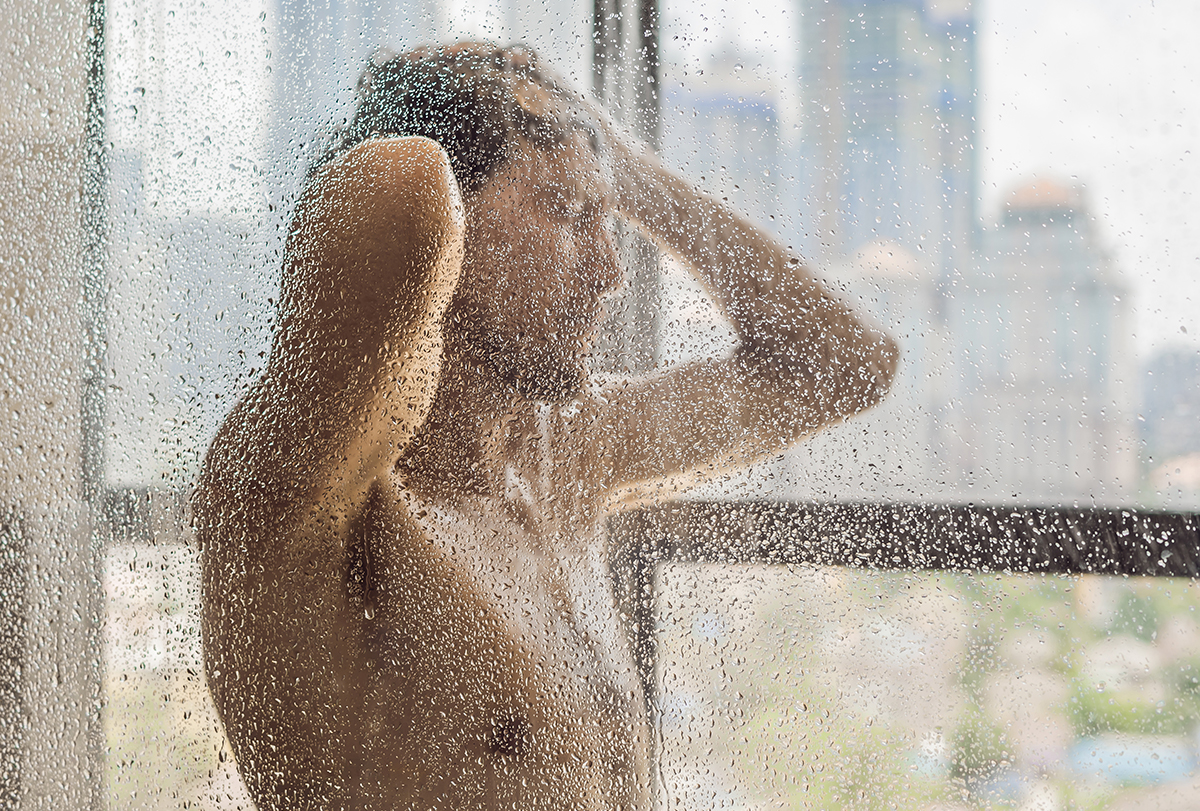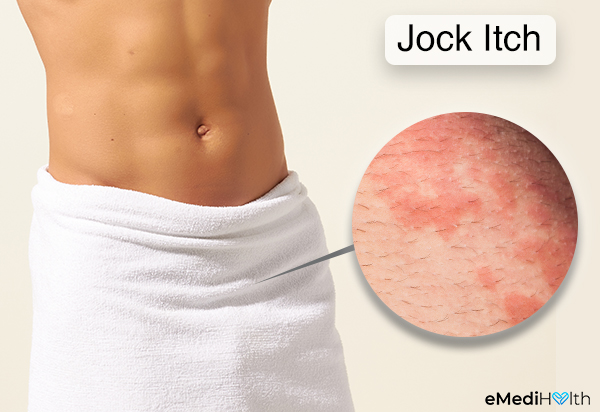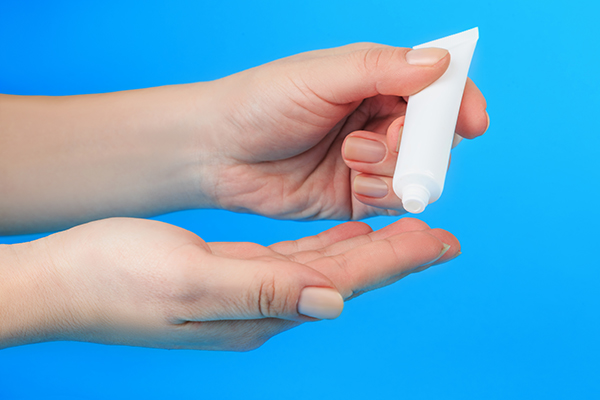In this article:
Jock itch, also known medically as tinea cruris, is a relatively harmless skin condition that is characterized by the development of an itchy rash in the groin area. The fungus responsible for jock itch is Trichophyton rubrum, and like most fungi it thrives in warm, moist environments.

Although this condition can affect anyone, it derives its name from the fact that it is mostly observed among male athletes or jocks. Perhaps it is because sportspeople who engage in rigorous physical exercise regularly sweat profusely, making them increasingly vulnerable to such fungal threats.
Cause of Jock Itch
Jock itch develops when the warm, moist areas of the body are exposed to the fungus. The folded regions in the skin, buttocks, groin, and upper thighs are the most hospitable conditions for the growth of the associated fungus.
Since these parts of the body tend to be warm and moist they serve as perfect breeding grounds for the infection-causing fungus.
Signs and Symptoms of Jock Itch
Jock itch is primarily characterized by a defined itchy, scaly rash around the groin, buttocks, skin folds, inner thighs, and at times the region around the anus.

Aside from the itching and pain other symptoms include:
- A burning sensation
- Skin redness
- Flaking skin
- A reddish or tan brown color in the center of the rash
- Peeling or cracking of the affected skin
- A rash edge that may be bumpy and may resemble a blister
Standard Treatments for Jock Itch
Jock itch responds well to topical treatments. Your doctor is likely to prescribe the following: (1)
- Antifungal creams and ointments such as terbinafine (Lamisil) and butenafine (Lotrimin) are recommended to be applied topically to the infected skin.
- Oral fungal treatments may be prescribed only in very severe cases. (2)
- If you continue to scratch or pick at the rash, your skin may rupture and become secondarily infected with bacteria. In such cases, doctors usually prescribe an antibiotic course to treat the subsidiary bacterial infection.
- Jock itch powder sprays may be prescribed for an infection in the groin region, where the skin is folded.
Antifungal creams are the mainstay of jock itch treatment and have to be used for at least 2–4 weeks to bear the desired results. Certain medications may yield faster results but are much more costly than the standard topical options.
Diagnosing Jock Itch
Your doctor will be able to identify jock itch by taking a close look at the rash and recognizing its characteristic appearance.
Your doctor will most likely inquire about any recent experience or activity that may have exposed you to the fungus. This line of questioning will help him determine how you may have contracted the infection and how to proceed accordingly.
In some cases where your doctor is unable to pinpoint the exact reason behind the infection, he/she will take a sample of the rash and send it for laboratory analysis.
Risk Factors Associated With Jock Itch

Jock itch has a high prevalence rate in athletes. However, anyone who sweats profusely can be afflicted with this discomforting problem, which can plague anyone across any age and gender. No one is immune to this condition.
Those who are at an increased risk of developing jock itch include:
- People who are prone to excessive sweating due to increased physical activity or some other reasons
- People who are overweight or obese as they tend to perspire a lot and have more folds in their skin that can trap moisture
- People who wear tight-fitting underwear, leaving no room for ventilation around the groin area
- People with a compromised immune system, whether due to an underlying condition or other reasons
- People who participate in contact sports, such as wrestling
- People who do not maintain proper personal hygiene daily, particularly those who do not bathe or change their underwear every day
- People who continue wearing damp, sweaty or soiled clothing for extended periods
When to See a Doctor
Following cleanliness practices and using over-the-counter topical creams can help reduce the itch. Fungal infections start responding to medications within a few weeks, while nail infections take around 3 months.
If the symptoms do not resolve and exist beyond the stated time, consider getting a medical review. It is imperative to get yourself treated and be prescribed the optimal treatment for your infection.
Expert Answers (Q&A)
Answered by Dr. Chris Jalilian, MBBS (Dermatologist)

Jock itch is not generally considered to be sexually transmitted. While it is contagious, certain characteristics need to be present for someone to “catch” jock itch.
More often than not, it occurs due to excessive moisture and heat in the skin folds, which provide the perfect environment for fungal growth. However, other causes of itchy skin around the genital area can be a sign of an STD. Hence, if you are unsure, see a doctor for an accurate diagnosis.
Jock itch usually clears within 2 weeks with adequate treatment. If it persists for longer, you should see your doctor.
Jock itch often subsides with the use of appropriate antifungal creams and starts to improve within days. It is likely to persist or worsen without any treatment. At times, when jock itch is extensive or particularly severe, antifungal tablets may be prescribed.
Jock itch can smell particularly bad, especially when it is severe and untreated. The fungus produces various chemicals that are not so pleasant to the nose! Sometimes, other coexisting bacteria and yeast can contribute to the nasty smell.
Left untreated, jock itch can become severe and spread to other parts of the body, such as the hands (tinea manuum), body (tinea corporis), and nails (onychomycosis). Cracks on the skin (fissures) can occur, which can be very painful and take longer to treat.
The fungal infection also compromises your skin’s ability to keep out other microbes. Hence, it can create a portal of entry for other microbes such as bacteria, which can then lead to cellulitis.
In addition, the inflammation caused by jock itch may cause other changes to your body and immune system that have not been studied well so far.
Rubbing alcohol can be irritating to the skin and cause other problems such as dermatitis. There are many more effective ways of treating jock itch than using rubbing alcohol.
Start by visiting your local trusted pharmacist or doctor for appropriate advice regarding what products to use.
It is unlikely but possible. Most individuals have the ability to prevent microbes from infecting their skin even when there is direct skin-to-skin contact.
However, when the immune system is impaired, or the skin environment is advantageous to the growth of the microbe (such as in hot and sweaty conditions or a poor skin condition to begin with), one can catch a fungal infection through contact with objects that harbor the fungus.
Always keep your skin in good health by regularly using simple moisturizers and avoiding overheating. Shower after exercise and dry thoroughly in between skin folds.
Do not let the symptoms persist for too long before you seek medical attention. Treat infections adequately by following the treatment instructions carefully.
Final Word
Personal hygiene is of paramount importance to keep away jock itch infections. Along with the aforementioned natural strategies, good hygiene habits will cut down the growth of the fungus and prevent the jock itch from spreading to other parts of your body.
Also, it is essential to track your progress. If the fungal infection persists, check in with your board-certified dermatologist to get yourself medically reviewed.

- Was this article helpful?
- YES, THANKS!NOT REALLY


